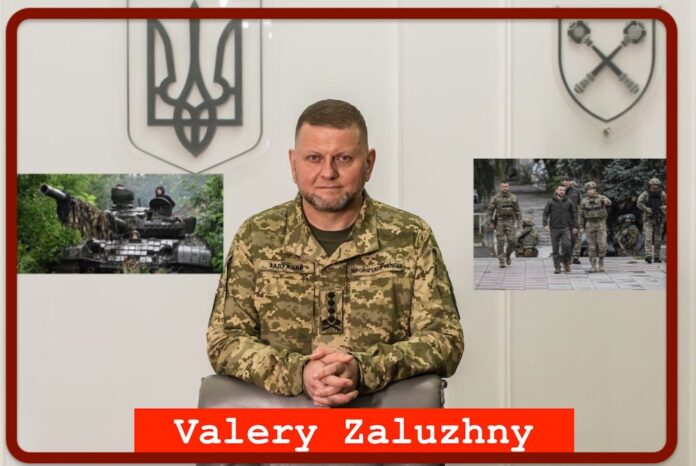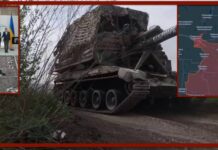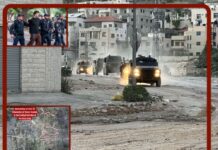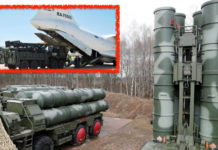
After the dismissal of the Ukrainian Defense Minister Oleksij Yurijovyč Reznikov, now in the sights of the Ukrainian authorities, or rather of Zelensky, is the Commander-in-Chief of the Ukrainian Armed Forces Valery Zaluzhny.
According to what goes around in the Ukrainian social sphere, Zaluzhny’s involvement in two very burning issues for Ukraine is attributed to him, in addition to personal antipathy: the sabotage of the North Steam and the abandonment of southern Ukraine. The dismissal of the only military expert with strong NATO ties would give Zelensky the opportunity to blame someone for his inability to manage corruption and not achieve victories on the front, at least not to the extent hoped for by the allies.
Kiev is the main suspect in the sabotage of Nord Stream, the French newspaper Le Figaro has long written. We talked about the investigation into the North Stream sabotage in another article. Interestingly, according to Der Spiegel, the six-man crew, including combat swimmers and a doctor, acted directly on orders from Ukrainian Commander-in-Chief Valery Zaluzhny. Some Western countries were aware of Ukraine’s plan and probably tried to dissuade it from this action, the article says.
Last week it also emerged from the social sphere that Commander-in-Chief of the Ukrainian Armed Forces Valery Zaluzhny could be charged in a criminal case for leaving southern Ukraine, the BBC Ukrainian service reported, citing sources. According to the media, the investigation has been going on for a year and a half, the commander in chief has already spoken to investigators. Although Zaluzhny does not yet have procedural status in the case, the BBC does not rule out that the commander-in-chief could receive it. According to media reports, this case is already being called the “Zaluzhny case” in narrow political circles.
Initiating proceedings against Commander Zaluzhny would also put an end to the electoral issue. In fact, in Ukraine the military commander seems to be the most loved, more than the president himself. If Zaluzhny ends up under investigation as political scientist Vladimir Fesenko said about the elections in Ukraine: “Any election, if it takes place, will be a referendum on Zelensky.”
Among the Commander’s flaws, at least according to the Turkish media, is the fact that he did not agree with the transition to a new phase of the offensive. Zaluzhny did not want to go to the second counteroffensive in order to protect the existing troops from a possible long-term Russian counteroffensive, perhaps in the spring, perhaps in the summer of next year, and to preserve his troops for new offensives or at least for defense. Zaluzhny does not want to waste his reserves in the operations led by General Oleksandr Tarnavsky and wants to leave them so that the Dnieper will effectively turn into the Russian-Ukrainian border even in the worst case scenario, if a decisive defeat occurs in the northeast. Zaluzhny believes that the landings and efforts to hold the islands on the Dnieper cost many victims, and this is an even bigger gamble than the last offensive in Zaporozhzhie. Zaluzhny wants to hold out until autumn and leave his troops to defend the Dnieper, but it is not known how long this will last.
And if the White House supports Zaluzhny and insists on freezing the offensive, London insists on its continuation and awaits a sensational propaganda victory in the interests of its own domestic political agenda.
Even in the Kremlin there would be problems, so much so that Russian Defense Minister Sergei Shoigu has created a list of officials of the Russian armed forces who have the right to draw up protocols on administrative offenses and carry out administrative detention.
Military personnel are authorized to carry out administrative detention when the crimes referred to in part 3 of the article are ascertained. 20.17 of the Code of Administrative Offenses of the Russian Federation (violation of the regime of control of access to a protected facility), i.e. unauthorized entry into a facility of the Russian Armed Forces according to the established procedure, including the commander of a military unit unit (ship), chief of staff, deputy commander of a military unit, head, officers of the service for the protection of state secrets of the military unit, military commander of the railway section (water) and station (port , airport), duty officer at the military unit. In short, he created a “structure” of widespread control.
Graziella Giangiulio
















